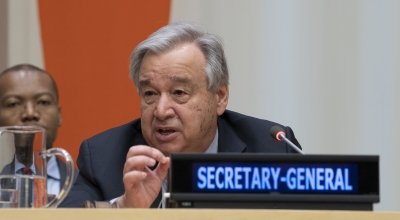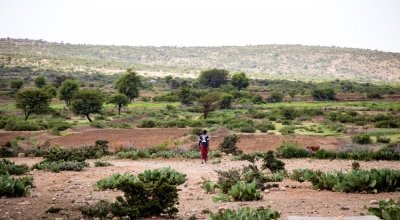
Knowledge Hub
The borderless disease: why Covid-19 is a reminder that we are all in this together
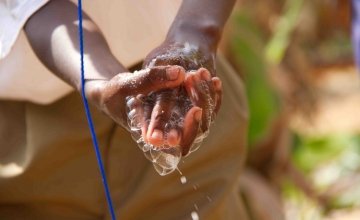
The concept of a borderless disease can be a frightening one. Since it was first detected in December 2019, Covid-19 has spread to nearly every country in the world, and more than half a million people are known to be infected.
In the UK, there have been over 19,500 confirmed cases and more than 1,200 deaths recorded so far, with numbers increasing each day, and it is believed that there are at least eight times as many cases that have not been detected (Oxford University Study). As such, there are growing concerns about how Great Britain and Northern Ireland and the NHS are going to cope over the coming weeks and months.
These concerns are well founded: the NHS is already under huge strain in terms of resource and staffing, raising questions around the level of care that will be available to those who need it. Furthermore, the detrimental effect that this disease will have on the country’s economy is yet to be determined, but it will undoubtedly be colossal for many.
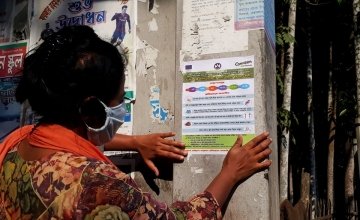
However, despite the gravity of the situation in the UK, we are fortunate as a nation to have some of the resources and facilities to tackle the Covid-19 outbreak. Hundreds of millions of people are much less fortunate, living in countries with weak health systems, and few reserves. Poverty is the world's biggest killer, and this pandemic poses an existential threat to vulnerable communities in the poorest countries.
With ‘developed’ countries already struggling to cope, one can only imagine how it might be when the virus starts to spread through the Central African Republic or Democratic Republic of Congo where healthcare is already significantly limited. Or, the unparalleled rate at which the disease has the potential to spread through places such as the Rohingya refugee camps in Bangladesh where people are living in very close and cramped proximity to one and other. There is an impending possibility for an enormous humanitarian catastrophe.
A borderless disease; a borderless response
It is a worrying time for us all. However, in times like these we are also being reminded just how connected we all are - and how much we depend on each other.
As witnessed during the moving two-minute applause for NHS, in what can often feel like a divided country there is an undisputable sense of community and camaraderie. Already, people are coming together to ensure that those who are less able to support themselves through this pandemic have the means to do so, and that those on the front line, deserving of recognition and praise, receive just that. Why? Because it is the right thing to do.
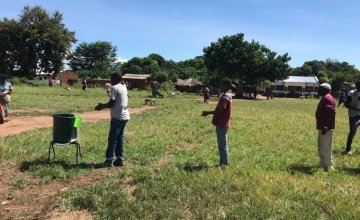
The right thing to do is ensure we all have what we need to be well and stay healthy and this includes our neighbours across the street as well as across seas and the globe. The two need not be mutually exclusive. Instead, this is the time to live up to our ideal of justice for all. This disease is indiscriminate as to who it targets meaning those most vulnerable here and in the world’s poorest countries will be affected the most.
The United Nations have also launched a major humanitarian appeal to keep COVID-19 from ‘circling back around the globe’, with Antonio Guterres, Secretary-General of the United Nations, stating that the “ultra-vulnerable” – the millions upon millions of people who are least able to protect themselves – is not only “a matter of basic human solidarity” but also crucial for combating the virus.
This is the moment to step up for the vulnerable.
An imminent deterioration
For the moment, many of the countries in which we work have relatively few confirmed cases — but that could rapidly change, and probably will. What is important is that we respond very rapidly while it is safe to do so. Once countries become severely affected, they will impose restrictions to supress spread of the virus and this may limit movement, access and our ability to respond. We are already ramping up preparations so that we are better equipped to deal with Covid-19 once it hits these vulnerable places. In Niger, we are sharing messages and advice over the radio to reduce the spread of the virus, and in Bangladesh, we have worked to ensure the availability of a month’s supply of food to Rohingya refugees who we support in the camps in Cox’s Bazar. We are also working to protect livelihoods by adapting programming to ensure vulnerable people have food and incomes should the pandemic hit.
Undeniably, the short-term effects of coronavirus in some of the world’s poorest countries will be devastating. However, as time goes on and the disease continues to spread, leaving unprecedented destruction in its wake, the issues we deal with on a daily basis will be exacerbated and our jobs will become even harder. The best way you can help us help those least able to deal with Covid-19 is to make a donation of whatever amount you can afford. That will give our teams more flexibility to respond quickly, effectively, and safely.
This disease is borderless; and our response should be borderless too.
We must act early to save lives.
Other ways to help
Donate now
Give a one-off, or a monthly, donation today.
Join an event
From mountain trekking to marathon running, join us for one of our many exciting outdoor events!
Buy a gift
With an extensive range of alternative gifts, we have something to suit everybody.
Leave a gift in your will
Leave the world a better place with a life-changing legacy.
Become a corporate supporter
We partner with a range of organisations that share our passion and the results have been fantastic.
Create your own fundraising event
Raise money for Concern by organising your own charity fundraising event.



